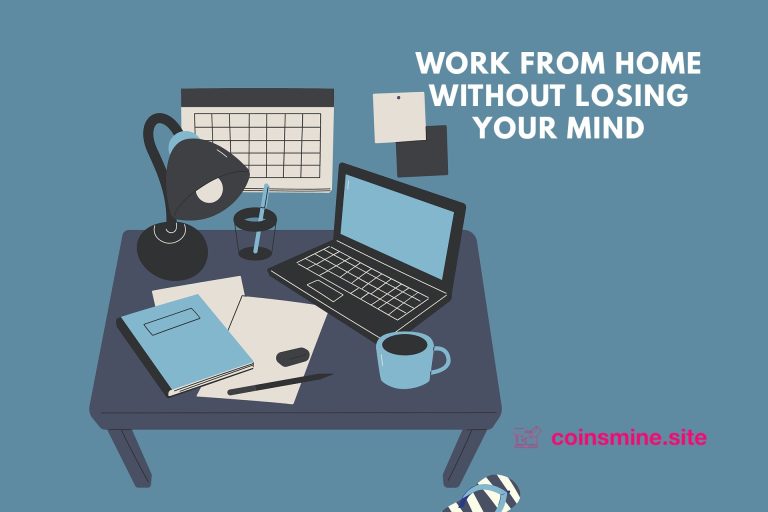Work from Home Without Losing Your Mind: With no commute, flexible scheduling, and the convenience of being in your own house, working from home seems like the best thing ever. However, the truth may be more nuanced. It is easy to feel overworked, lonely, or burned out when work and personal life are not firmly segregated. Routines break down, motivation might fade, and distractions accumulate.
Maintaining your mental health is crucial, regardless of how experienced you are with remote work or how you are still getting used to it. The good news? You can maintain your sanity, productivity, and attention by adopting a few useful routines and mental adjustments. Here’s how to work from home without losing your mind—while enjoying the experience.
Work from Home Without Losing Your Mind
Benefits include not having to commute, having flexible hours, and having more control over your surroundings, but there are drawbacks as well, such as a lack of social connection, blurred boundaries, and the constant lure of distractions. Here are some doable strategies for working from home without going crazy.
(1) Create a Dedicated Workspace.
Blending business and personal environments is one of the most common mistakes people make when working from home. Although it may feel comfortable, working from your couch or bed frequently results in diminished concentration and a blurring of boundaries. Establish a dedicated workspace if at all possible, even if it is just a tiny spot in a room. A table, a comfortable chair, and some natural light can significantly improve your mood and level of work.
(2) Stick to a Routine.
It is easy to lose track of your routine when your house turns into an office. However, one of the best strategies to preserve organization and mental clarity is to stick to a regular schedule. Establish a morning routine that includes taking a shower, getting dressed (even if it is simply comfortable clothes), eating breakfast, and deciding on a precise time to begin working. Have a specific termination time as well. To prevent working nonstop, approach your workday as you would at an office.
(3) Take Real Breaks.
It is simple to spend hours at your computer without moving if you do not have coworkers or a commute to indicate breaks. Throughout the day, remind yourself to take quick breaks by getting up, stretching, eating, or going for a stroll around the neighborhood. Take advantage of your lunch break to genuinely detach from work by spending some time outside, calling a friend, or eating away from your computer.
(4) Limit Distractions.
Distractions abound at home, whether it be laundry, dishes, children, pets, or the desire to go through your phone incessantly. During working hours, try establishing limits with family members or roommates. If required, put on noise-canceling headphones. During working hours, you can maintain your focus by using tools like website blockers (like Cold Turkey and Freedom). Being deliberate rather than flawless is the aim.
(5) Prioritize Connection.
It can be lonely to work from home, particularly if you are accustomed to engaging with coworkers daily. Set aside time to communicate. During your break, set up virtual coffee talks, check in with coworkers, or contact a buddy. Your happiness and sense of belonging can be improved by even minor social contacts.
(6) Set Clear Boundaries.
Knowing when to stop is one of the most difficult aspects of working from home. Burnout can easily result from work spilling over into weekends and evenings. To help you mentally “leave the office” at the end of the workday, try to physically divide your workspace.
(7) Focus on What You Can Control.
Distractions, technological difficulties, or unmotivating days will occur. That is typical. Prioritize one or two important activities, create a brief daily to-do list, and acknowledge minor victories. You may increase your productivity and mental health by being adaptable with yourself.
Final Thoughts.
It takes time to become proficient at working from home, just like any other ability. It calls for patience, self-awareness, and discipline. But with the correct techniques, you can protect your mental well-being, continue to be productive, and even enjoy the flexibility that comes with working remotely. Keep in mind that your health is equally important as your productivity. Learn how to thrive rather than merely get by when working from home.



